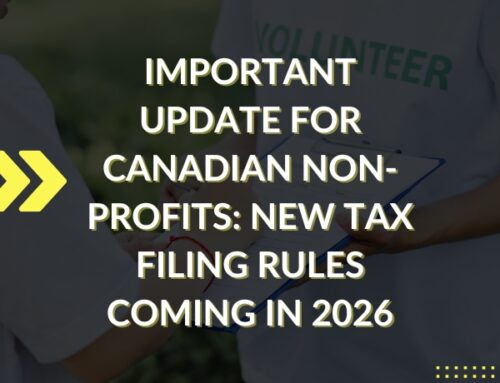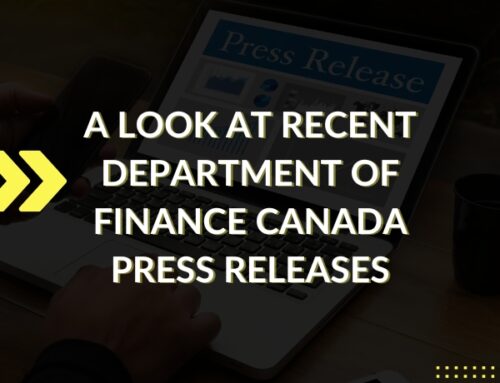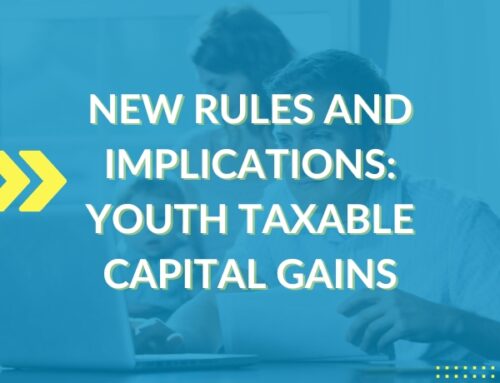Originally published by Segal GCSE on September 14, 2022.
Note: This is an update to a Segal GCSE LLP article that was originally published on January 17, 2022. You can find that HERE.
The Department of Finance recently provided clarification on the new 2022 reporting requirements for Trusts which would normally be due by March 31, 2023. The reporting applies to express Trusts resident in Canada, all non-resident trusts that currently must file a T3 return and Bare trusts.
Most noteworthy is the change in reporting for Bare trusts. This is a new requirement for a commonly used structure that previously was not disclosed to the CRA. Please see below for a detailed explanation of Bare trusts and the types of situations that will be caught under the new rules.
To ensure compliance with the beneficial ownership requirements, CRA can assess substantial penalties up to 5% of the maximum value of property if they believe a taxpayer knowingly withheld this information. This is of particular concern for real estate Bare Trustee situations. If the property being held has a value of $50 Million and the penalty clause applies, the penalty could be $2.5 Million.
1. What is an express trust?
An express trust is generally a trust created with the settlor’s express intent, usually made in writing (as opposed to a resulting or constructive trust, or certain trusts deemed to arise under the provision of a statute).
The Exceptions are:
- Certain regulated trusts, such as a lawyer’s general trust account
- Trusts that qualify as non-profit organizations or registered charities
- Mutual fund trusts, segregated funds, and master trusts
- Trusts whose units are all listed on a designated stock exchange
- Graduated rate estates
- Qualified disability trusts
- Employee life and health trusts
- Certain government funded trusts
- Trusts under or governed by certain registered plans
- Trusts under an employee profit sharing plan
- Trusts under a first-time home savings account
- Cemetery care trusts and trusts governed by eligible funeral arrangements
2. What is a Bare trust?
A bare trust exists where a person (i.e., the trustee) has legal title to property and has no other duty to perform or responsibilities to carry out as trustee, in relation to the property vested in the trust.
The sole duty of a bare trustee would be to convey legal title to the trust property on demand and according to the instructions of the beneficiary as provided for within the trust deed. The bare trustee does not have any independent power, discretion or responsibility pertaining to the trust property. In such cases, the beneficial owner retains the right to control and direct the trustee in all matters relating to the trust property.
Bare trusts are commonly used in variety of situations such as:
- Holding investments (e.g., public company shares) in trust for another individual (e.g., a minor)
- Holding legal title to real estate as part of corporate reorganizations and joint venture arrangements
- Shelter assets from estate administration tax (i.e., probate) as part of estate planning
Historically, bare trusts have not been disclosed to the CRA. Instead, all income (losses) and capital gains (losses) in respect of the property have been reported by the settlor/beneficial owner in their tax filings.
Under the new reporting rules, all of the above situations will now be caught and give rise to a T3 return filing requirement. Please note that these rules relate to the disclosure of bare trusts and will not change the income tax treatment and income tax filing requirements of bare trusts. The disclosure requirement is on top of the normal tax filing requirements.
If you have any “in trust” accounts or bare trustee arrangements, please notify your Segal GCSE advisor as soon as possible.
3. What are the new T3 Filing Requirements?
Historically, a trust resident in Canada did not need to file an annual T3 return unless there was tax payable by the trust for the year or the trust disposed of capital property. In addition, trusts did not need to file a T3 return where nominal income was earned by a trust and allocated to Canadian resident beneficiaries.
Under the new rules, most personal trusts resident in Canada will have to file an annual T3 return regardless of the level of activity and the fact that no income taxes are payable for the year.
The Exceptions to these general rules will apply to the following situations:
- Trusts that have been in existence for less than three months
- Trusts that hold less than $50,000 in assets throughout the taxation year (the assets can only be cash, certain debt obligations and listed securities)
4. What additional information will have to be provided?
For 2022 and subsequent taxation years, all express trusts resident in Canada (with exceptions noted previously), non-resident trusts that currently have to file a T3 return and bare trusts will need to report the name, address, birth date, jurisdiction of residence and identification number (SIN or Foreign ID) of:
- trustees,
- beneficiaries
- settlor of the trust
- each person who has the ability (through the trust terms or a related agreement) to exert control or override trustee decisions over the appointment of income or capital of the trust (e.g., a protector)
5. How will the trust provide the additional information?
A trust will have to file a new schedule with its T3 return to report the additional information regarding its beneficial owners, that is, the identity of all trustees, beneficiaries and the settlor of the trust, along with each person who has the ability (through the trust terms or a related agreement), to exert control or override trustee decisions over the appointment of income or capital of the trust (e.g., a protector).
Further information about the new schedule will be posted on Canada.ca when it is available.
6. What happens if a trust fails to file the T3 return or forgets to provide the additional information?
For 2022 and subsequent taxation years, a penalty will apply if a trust that has to file a T3 return fails to do so or fails to provide the additional information about the beneficial ownership.
The penalty will be equal to $25 for each day of delinquency, with a minimum penalty of $100 and a maximum penalty of $2,500.
If a failure to file the return was made knowingly, or due to gross negligence, an additional penalty will apply. The additional penalty will be equal to 5% of the maximum value of property held during the relevant year by the trust, with a minimum penalty of $2,500. As well, existing penalties in respect of the T3 return will continue to apply.
As an example, assume a corporate bare trustee holds legal title to commercial real estate with a fair market value of $50 million in 2022. The beneficial owner of the property decides that they do not want to disclose the required information in a T3 Trust filing. In this situation, CRA can assess a penalty of $2,500 if the T3 return is not filed within 100 days of the trust filing deadline. As well, CRA can assess an additional penalty of $2.5 million (i.e., $50 million x 5% of the maximum value of the property held during 2022).
You can contact a Segal GCSE representative if you have any questions.






